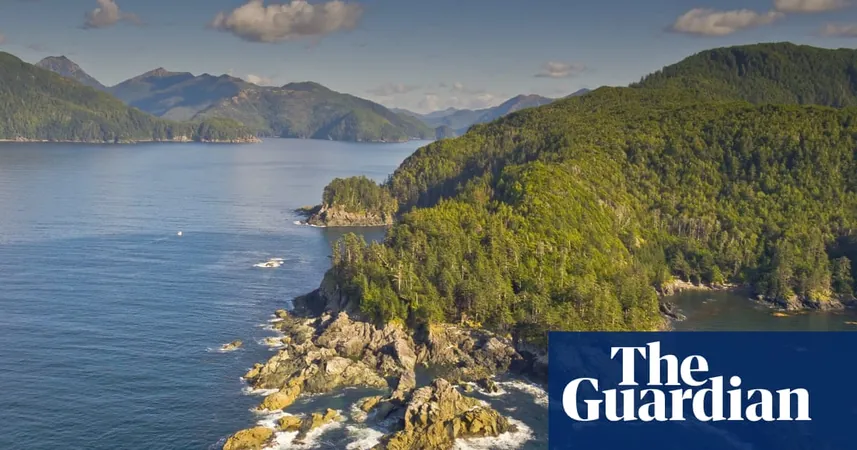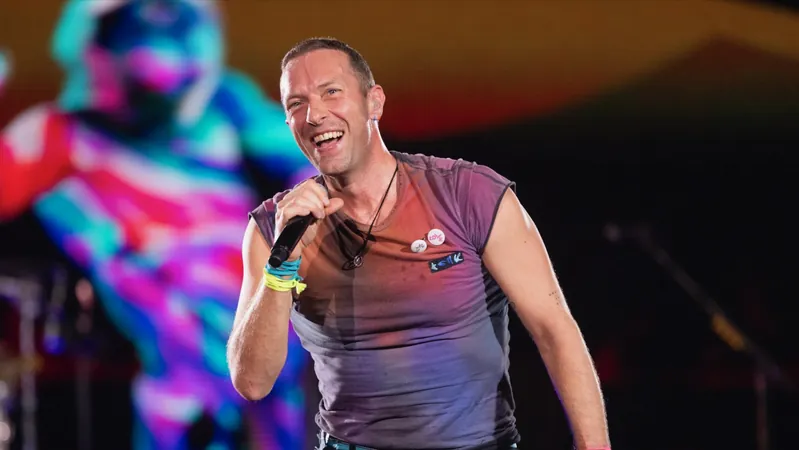
Bold Moves in British Columbia: A Revolutionary Approach to Decolonization
2024-10-09
Author: Emma
Introduction
In a groundbreaking initiative, British Columbia (BC) is rewriting the rulebook on governance by sharing authority with Indigenous nations over a territory larger than both France and Germany combined. This unprecedented experiment is a significant stride toward decolonization and the recognition of Indigenous rights.
The Journey to Change
The journey to this transformative change began in 2019 when British Columbia became the first region globally to adopt the United Nations Declaration on the Rights of Indigenous Peoples (UNDRIP) into law. This pivotal legislation allows the provincial government to collaborate with First Nations in decision-making processes about land management, which could redefine policies related to forestry, mining, and construction.
Challenges Ahead
However, implementing this new framework is anything but straightforward. With more than 200 First Nations involved, complex negotiations must dismantle a long-standing system that prioritized industrial profits over Indigenous rights. Terry Teegee, chief of the BC Assembly of First Nations, aptly describes the experience as building a plane while flying it, emphasizing its unique global context.
Global Significance
Sheryl Lightfoot, an Anishinaabe scholar, further confirms the significance of BC's approach, asserting that it showcases a deliberate effort to implement UNDRIP effectively. Approximately 150 member countries endorsed UNDRIP during its adoption in 2007, but only Canada, through BC’s leadership, has transformed it into enforceable legislation.
International Attempts
While other nations have attempted constitutional reforms echoing UNDRIP, including Ecuador, Bolivia, Norway, and Kenya, they have struggled with significant implementation gaps. Notably, Lightfoot points out the shortcomings of New Zealand, which has been recognized for its Indigenous rights advancements but has yet to enact legislation mirroring BC’s proactive stance.
Obstacles in the Way
Yet, the path has not been free of obstacles. The COVID-19 pandemic disrupted progress, and a recent conservative coalition that opposes Indigenous rights has further complicated matters, leading to stagnation in legislative action.
Impact of Colonial Practices
Despite the enormity of BC’s land—its forest cover alone compared to Ukraine—Indigenous populations, who have lived sustainably on these lands for millennia, remain significantly impacted by colonial practices. A staggering 97% of the land now identified as British Columbia was taken without a treaty, contributing to an ecological crisis that has seen vital species like wild salmon decline by 90%.
Legal Progress
Over the past 30 years, numerous Supreme Court rulings have acknowledged the illegality of previous land appropriations. Meanwhile, Indigenous communities have engaged in extensive legal battles and civil disobedience to reclaim their rights.
Optimism Amidst Protest
While some protests endure, most stakeholders express optimism about the rapid changes unfolding in BC. Adam Olsen, from the opposition Green party, points out the immense challenge of reversing 175 years of policies founded on the denial of Indigenous rights and title.
Recent Developments
Recent announcements illustrate BC's commitment to this transformative vision. In April, the Haida Nation gained full ownership of Haida Gwaii, an expansive archipelago. Following this, a conservation area called Klinse-Za was expanded to follow a co-management model with two Indigenous nations, and in July, the Great Bear Sea initiative was launched—creating a network of marine protected areas covering 100,000 square kilometers to be jointly overseen by 17 coastal nations.
Critical Election Ahead
However, this monumental shift is not without its critics. A provincial election on October 19 threatens to disrupt the momentum, as the New Democratic Party (NDP), currently in power, faces a resurgent Conservative opposition poised to challenge the new legislation and roll back environmental protections.
Conclusion
As British Columbia navigates its groundbreaking approach to decolonization, the outcomes of this election may set a critical precedent for Indigenous rights globally. With ecosystems facing collapse and Indigenous communities at the forefront, the world is watching closely to see if BC can maintain its pioneering legislation in the face of potential political upheaval.









 Brasil (PT)
Brasil (PT)
 Canada (EN)
Canada (EN)
 Chile (ES)
Chile (ES)
 España (ES)
España (ES)
 France (FR)
France (FR)
 Hong Kong (EN)
Hong Kong (EN)
 Italia (IT)
Italia (IT)
 日本 (JA)
日本 (JA)
 Magyarország (HU)
Magyarország (HU)
 Norge (NO)
Norge (NO)
 Polska (PL)
Polska (PL)
 Schweiz (DE)
Schweiz (DE)
 Singapore (EN)
Singapore (EN)
 Sverige (SV)
Sverige (SV)
 Suomi (FI)
Suomi (FI)
 Türkiye (TR)
Türkiye (TR)